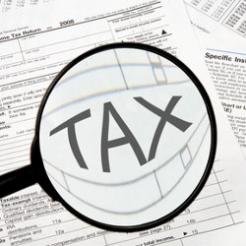The rules for submitting P11D information are changing. David Hadley explains how to take advantage.
Currently where an organisation provides benefits-in-kind, it needs to complete a Form P11D for each employee that receives a benefit. These forms need to be completed for each tax year and submitted to HMRC. Where there are taxable benefits, employer’s national insurance will also usually be payable.
On the P11D, the company needs to disclose items that may not be taxable (eg reimbursed travel expenses), and the employees will then need to claim the expenses as a tax deduction personally.
To avoid administration, HMRC grants dispensations from reporting certain expenses on the P11D. In order to obtain such a dispensation, the employer needs to make an application to HMRC and put in processes to ensure the expenses covered are allowable.
However, from 6 April 2016 dispensations will no longer be required if the employer is of a view that the expenses would be deductible and there will simply be no requirement for it to be disclosed on the P11D. Employers will still need to have a system in place for checking that employees are incurring and paying amounts in respect of exempt expenses and that a deduction would be allowed for them. HMRC will be publishing a number of examples of the type of system that it will accept as meeting its requirements. Employers can also choose to put a different system in place provided they demonstrate that payments are only being made to employees who would be eligible for a deduction, and that the employees are actually incurring the expenses.
However, unlike with dispensations, the exemption will not apply to expenses or benefits that are part of a salary sacrifice arrangement. These include any arrangement where employees give up the right to receive earnings in return for tax-free expenses payments, or where the level of earnings depend on the amount of any expense payments. After 6 April 2016, all expenses paid to employees under these arrangements will need to be paid after deducting income tax and national insurance.
Currently, where an employer provides employees with a set amount of cash for some common expenses such as travel and meals, these are known as scale rates. The employer can set these by either agreeing a scale rate with HMRC or using HMRC’s benchmark scale rates for subsistence costs. There is then no need to disclose these on the P11D. This will continue under the new rules.
Threshold
Employees who earn at a rate of less than £8,500 a year can currently have certain benefits-in-kind or expenses provided tax-free. This exemption does not apply to company directors but does apply to directors of charitable companies. This exemption is being removed from 6 April 2016 for all employees and directors, from which date any taxable benefits or expenses will be subject to income tax and national insurance irrespective of the level of the employee’s remuneration. With the personal tax allowance now at £10,000, most employees will not be affected by the change, though it could give rise to additional class 1A national insurance being paid by the employer.
There are two exceptions for the change which have been provided by the legislation. Ministers of religion who earn less than £8,500 a year will still receive most of their benefits taxfree. And carers who are provided with accommodation in the home of the person they care for can receive their board and lodging free of tax and national insurance.
The benefits-in-kind rules should not normally apply to volunteers as they are not in an office or employment. As such, the payment of the expenses they incur should not be caught. However, further advice should be sought if they receive round-sum allowances or receive benefits that exceed the actual cost incurred.
David Hadley is a senior tax manager at Kingston Smith









